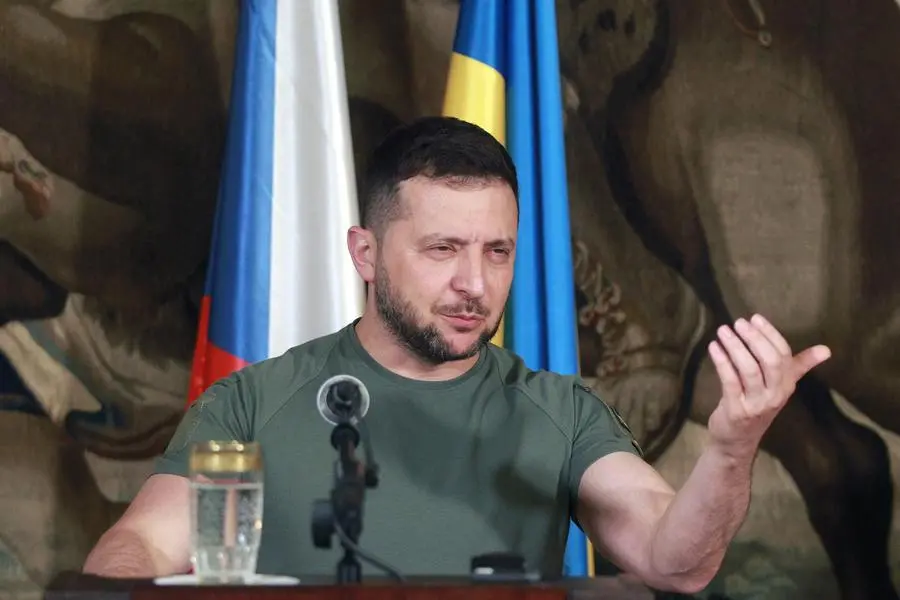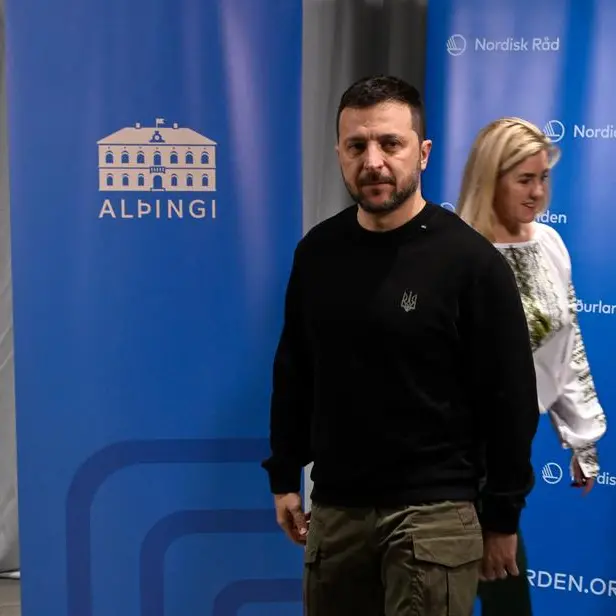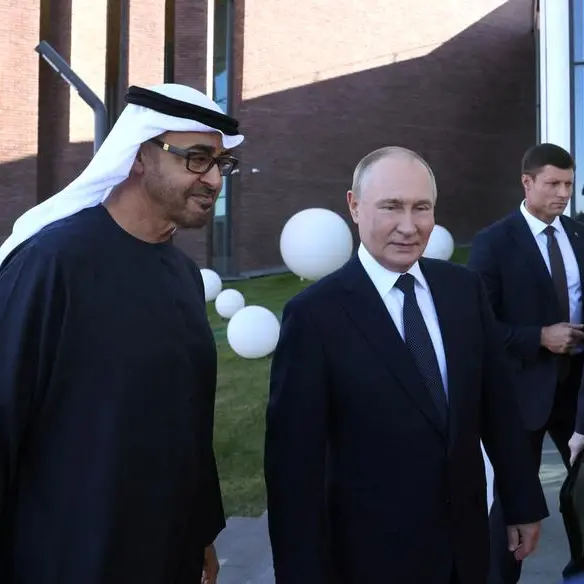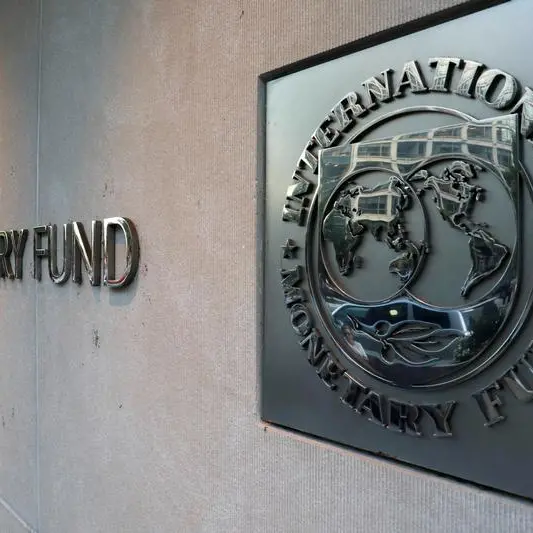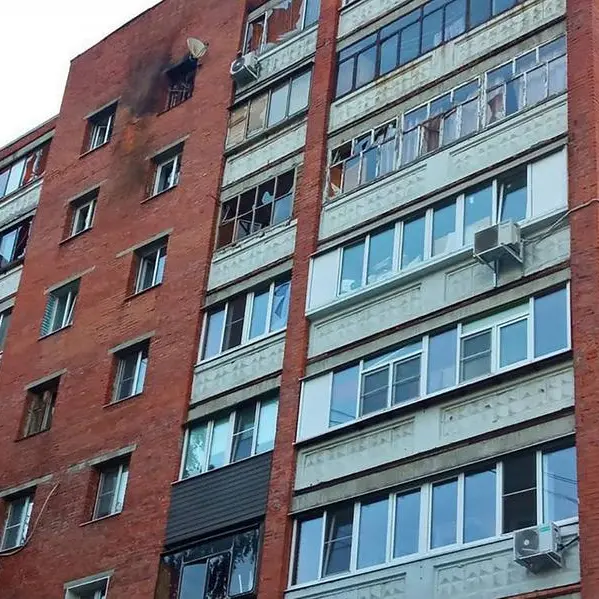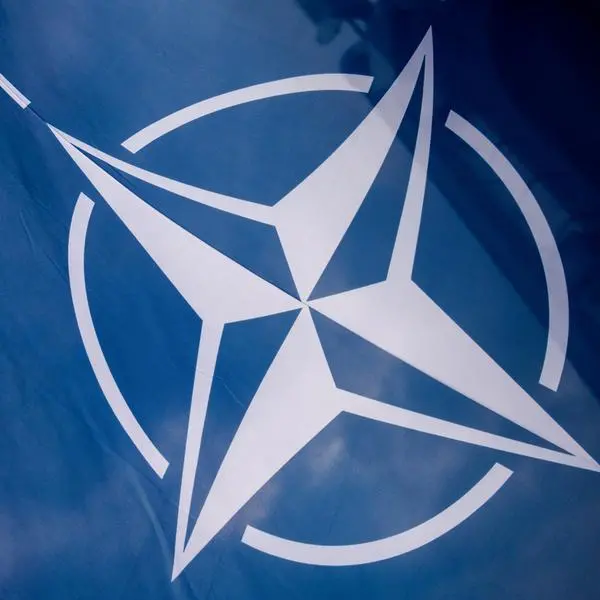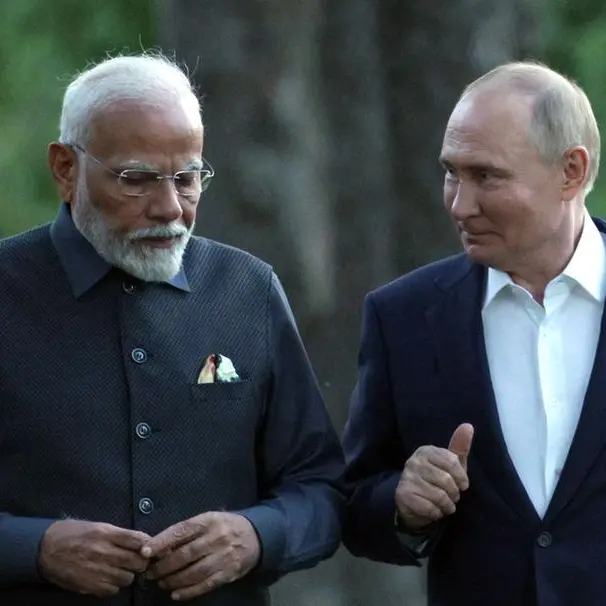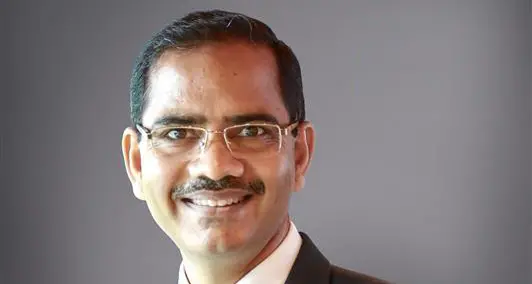PHOTO
Ukrainian President Volodymyr Zelensky admitted in Prague Thursday that Ukraine's counteroffensive was "not fast" but said Kyiv's troops were advancing.
Zelensky arrived in Prague as part of a diplomatic push for Ukraine to join NATO and woo allies for more weapons for its mounting pushback against Russia.
"The offensive is not fast, that's a fact. But nevertheless, we are advancing, not retreating, like Russians," Zelensky told reporters alongside Czech leader Petr Pavel. "We now have the initiative."
Zelensky traveled to Prague to meet Pavel hours after visiting Bulgaria, a major supporter and ammunition producer, also to discuss NATO membership and more armaments.
On Friday he is scheduled to hold talks in Istanbul with Turkish leader Recep Tayyip Erdogan, an important broker in the conflict.
Zelensky told reporters that slow weapons deliveries to Ukraine have delayed Kyiv's counteroffensive, allowing Russia to bolster its defences in occupied areas.
- Cluster bombs -
In Washington US media reported that the Pentagon was preparing a new package of arms and ammunitions that could include controversial cluster bombs.
The weapons, rockets which disperse multiple small explosives over a wide radius, have already been used by Russian and Ukrainian forces in the war.
Officials said a final decision had not been made. Pentagon spokesman Pat Ryder said Thursday that the cluster munitions that could be supplied are more recent models with low "dud rates" -- the percentage of bomblets that do not immediately detonate.
"The ones that we are considering providing would not include older variants with dud rates that are higher than 2.35 percent," Ryder said.
Ukraine Defence Minister Oleksiy Reznikov said in a tweet that he had spoken by phone to US Pentagon chief Lloyd Austin.
The two "talked about new projects related to supplying various types of ammunition. Stay tuned for the good news," Reznikov wrote.
But human rights groups condemned the plan, saying the bomblets can go undetonated and remain at the location for years posing threats to civilians.
"Cluster munitions used by Russia and Ukraine are harming civilians now and will leave bomblets behind that will continue to do so for many years," Human Rights Watch said in a new report Thursday.
"Both sides should immediately stop using cluster munitions and not seek to obtain more of these indiscriminate weapons. The US should not transfer cluster munitions to Ukraine," it said.
- Prigozhin 'not in Belarus' -
In Russia, the Kremlin criticised Zelensky's visit to Bulgaria, saying the Ukrainian leader was trying to "drag" other countries into the war.
Meanwhile the mystery deepened as to the fate of Wagner chief Yevgeny Prigozhin, 12 days after the collapse of his short-lived mutiny.
Originally Prigozhin was said to have been exiled in Belarus.
But Belarus leader Alexander Lukashenko -- who mediated a deal to end the revolt -- said Thursday that the Wagner leader wasn't in his country.
"As far as Prigozhin is concerned, he is in Saint Petersburg... He is not in Belarus," Lukashenko told reporters in Minsk.
Lukashenko said he knew "for sure" that Prigozhin was free.
Lukashenko also said Wagner mercenaries have not established a base in Belarus yet, despite a Kremlin offer for attempted mutiny participants to relocate.
- 'Ceiling started to fall' -
Meanwhile Russian missiles fell on Lviv killing at least five, the biggest attack on civilian infrastructure in the western Ukrainian city since the Russian invasion in February 2022, the city's mayor said.
Russia's defence ministry said its long-range, precision strikes overnight had hit all the designated targets, but did not specifically mention Lviv.
Ukraine Interior Minister Igor Klymenko wrote on Telegram that the missiles had struck a residential building and destroyed its upper floors.
Some 37 were wounded, including a child, officials and the emergency services.
UNESCO said the missiles also struck a building in the buffer zone of Lviv's historic center, calling it a violation of the World Heritage Convention.
Rescuers were working to reach those still trapped in the bombed residential building, and AFP footage showed emergency responders clearing rubble and wood from the gutted first floor.
"I woke up from the first explosion, but we didn't have time to leave the apartment," said Olya, 37.
"There was a second explosion, the ceiling started to fall, my mother was immediately hit," she said.
She said her mother and neighbors died in the attack.
"At this point, it seems that I was the only one who survived from the fourth floor. It's a miracle," she said.
